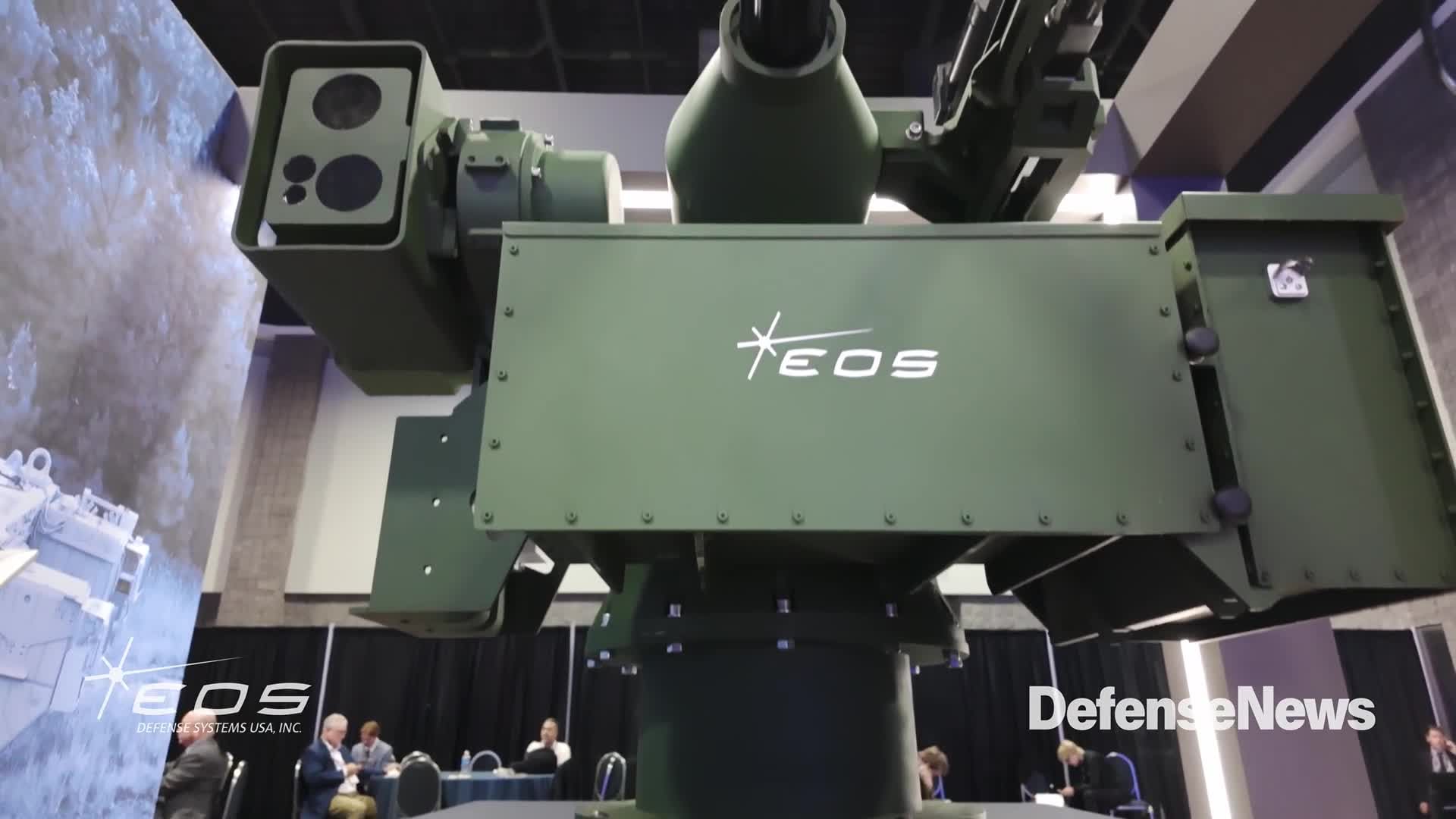JERUSALEM, Israel — An Israeli company said it’s working with country’s Ministry of Defense on supplying drones fueled by hydrogen that can carry payloads that are larger than what traditional quadcopters can handle, and for greater distances.
HevenDrones said that “with 5-times greater energy efficiency than traditional lithium battery-powered drones, the H2D55 is capable of flying for 100 minutes” with a payload capacity of 7 kilograms (15 pounds).
Chief Executive Officer Bentzion Levinson, speaking ahead of next week’s IDEX defense and security exhibition in Abu Dhabi, said that HevenDrones seeks to provide drones that fill a capability gap that exists between large HALE and MALE drones, and smaller quadcopters that carry cameras and other sensors.
“Between those two types there is a big lack of drones, not only taking pictures but taking a role on the battlefield, so we call it taking drones from a flying camera to robot,” he told C4ISRNET in an interview.
The dronemaker has launched drones that carry a 20 pound and 70 pound payloads, which can be useful to supply soldiers on the battlefield, carrying things like water, ammunition or medical supplies. The company also integrated land robots onto the payload, Levinson said.
One limitation drones face is that a larger payload means a drone needs more battery power, and then the weight becomes larger, meaning the drone needs larger engines. This triangle of size issues has kept smaller drones from achieving long ranges and endurance in terms of flying time. Levinson says that using hydrogen fuel enables a longer flight time and a better energy-to-weight ratio. The company worked closely with Israel’s Ministry of Defense on this project over the last year and a half.
“Essentially we create energy in the sky with a hydrogen tank and cylinder that is highly pressurized and it makes the gas into energy and that goes into a battery that powers the drone,” Levinson said.
Swappable fuel cells
HevenDrones worked with hydrogen fuel energy developers in New York state and the U.K. to customize an energy source for the drones. Hydrogen fuel cells can be swapped out, like a battery, and armies can bring fuel to a base to portably refuel tanks, and one can have an electrolyzer in the field, with water and electricity, to create the hydrogen fuel source, according tot he company.
The company has tested these energy sources to make them safe, subjecting them to small arms fire and also dropping them from a height. It’s planning to open an office in Miami says it is starting to see global growth in partnerships.
“The hydrogen tailored factories has opened a new capability and new generation…if you can imagine the changes on battlefield for instance,” said Levinson, a former soldier. “I was a combat commander, we find ourselves as military people in difficult situations and having flying robots that can fight the war with us and carry our bags or fly in a few hundred feet ahead of us with thermal cameras and eliminate risks, that can eliminate risk to our soldiers.”
HevenDrones sees the potential for partnerships in the UAE. In the wake of the peace deal with Israel, called the Abraham Accords, Israeli companies have been appearing at IDEX. CEO Levinson says he sees growth, resources and also an “innovation mindset” in the UAE that has potential for “strengthening the region and that is a key priority. We see it as a top market.”
Like most Israel companies in the defense sector, HevenDrones doesn’t disclose its other customers but says it has drones “flying on two continents.” The battery-powered drones are already operational and the hydrogen-powered drone has passed a proof of concept, with the company expecting to deliver the first of these drones to the market in the next couple of months. It describes the H2D55 as the first hydrogen-powered drone for commercial use, and said its working with an unnamed global parter to roll it out in the second half of 2023.”
“Imagine 30 drones advancing in a swarm and if they don’t have to come back every 30 minutes but in a few hours,” Levinson said. “Hydrogen can mean 4-5 hours of flight time, so it’s a big jump; it’s a new capability of what we can do with payloads and flight time.”
Seth J. Frantzman is the Israel correspondent for Defense News. He has covered conflict in the Mideast since 2010 for different publications. He has experience covering the international coalition against the Islamic State group in Iraq and Syria, and he is a co-founder and executive director of the Middle East Center for Reporting and Analysis.








